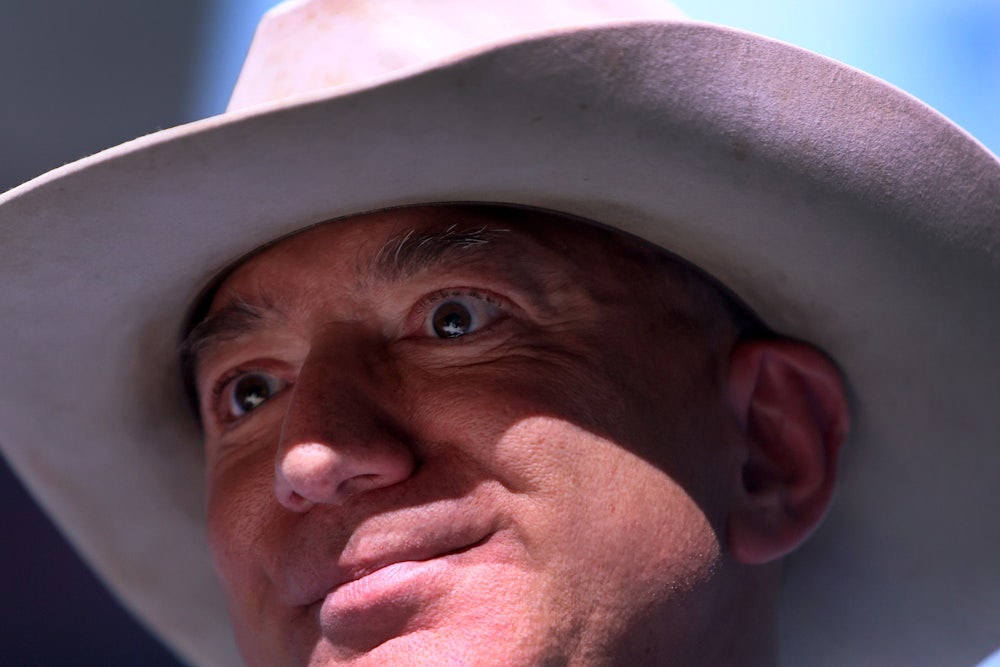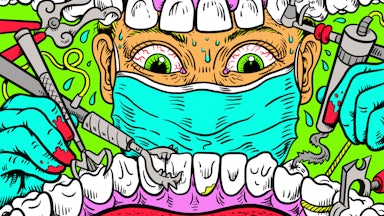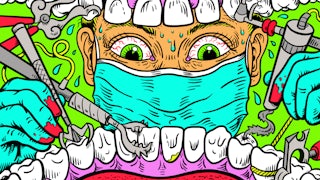“I also want to thank every Amazon employee and every Amazon customer,” Jeff Bezos said Tuesday on returning from the edge of outer space, “because you guys paid for all of this.” This unexpected endorsement of Karl Marx’s theory of surplus value is a shot in the arm to Marxian economics, which has had a tough time of it ever since the collapse of communism in the late 1980s.
Marx’s theory of surplus value derives from the labor theory of value as articulated by David Ricardo and Adam Smith. The labor theory of value is expressed mathematically as:
c + L = W
where c represents the materials and tools used, L represents the labor performed, and W represents the value of the resultant product.
In Bezos’s formulation, c represents Amazon’s warehouses (where workers go unpaid for time spent waiting on line to be frisked for stolen goods before they’re allowed to leave for the day) and trucks (whose drivers pee in bottles to avoid getting penalized for taking bathroom breaks). L represents the employees, whom Bezos won’t allow to unionize. W represents, among other things, the cost of a ride to the edge of space for a billionaire going through a very public midlife crisis.
Marx’s theory of surplus value says that L vastly exceeds the compensation the laborer actually receives, which is set at a subsistence level. The rest is “surplus value,” pocketed by the capitalist to reinvest in the enterprise. But since you can invest only so much in factories, the capitalist may end up being, in Bezos’s case, the richest person in the world, with so much cash that—without even thinking twice—he can spend a fortune to play astronaut for a day and toss Skittles into the mouths of fellow weightless passengers.
“You have literally got hundreds of thousands of employees of Amazon who are adding value as they work,” economist Richard D. Wolff told Pacific Standard in 2019. “The value added by those workers is greater than the value paid to them as wages, and that’s the surplus value that is accruing, in a capitalist system, to the employer.”
In embracing Wolff’s view, Bezos is rejecting an alternative view he espoused just three months ago, before his life-changing voyage to the edge of space. As William Banks and Alex N. Press noted last month in Jacobin, Bezos’s April 15 letter to Amazon shareholders contains this passage:
These numbers are part of the reason why people work for us, why sellers sell through us, and why customers buy from us. We create value for them. And this value creation is not a zero-sum game. It is not just moving money from one pocket to another. Draw the box big around all of society, and you’ll find that invention is the root of all real value creation [italics added].
Who is the inventor? Hint: It isn’t the workers.
“If you read some of the news reports,” Bezos wrote, “you might think we have no care for employees. In those reports, our employees are sometimes accused of being desperate souls and treated as robots.”
To his credit, Bezos allows many of these reports to appear in the newspaper he owns, The Washington Post. The Post employees who report such stories increase page views, which may or may not create profit. I’m not sure I really believe the Post is making money, but if it is then we have a circumstance that would make Marx’s head spin. The surplus value created by exposés about labor abuses at Amazon enriches the capitalist who committed them. It calls to mind the scene in Charlie Chaplin’s The Kid where Chaplin gets little Jackie Coogan to throw a rock through a pane-glass window, then immediately shows up with a new pane to sell to his victim. Perhaps Bezos should have thanked Post reporters for bankrolling his space adventure. But that wouldn’t have been prudent, because the Post has a union.
Anyway, Bezos wrote, the accusation that Amazon mistreats worker bees who, three months ago, did not in Bezos’s view create value for the company, isn’t accurate.
Employees are able to take informal breaks throughout their shifts to stretch, get water, use the rest room, or talk to a manager, all without impacting their performance. These informal work breaks are in addition to the 30-minute lunch and 30-minute break built into their normal schedule.
They get to stretch? And pee? And talk to their managers (so long as it isn’t about starting a union)? Surely no dictatorship of the proletariat could improve on that.
And yet, Bezos sensed, something was amiss.
It’s clear to me that we need a better vision for our employees’ success. We have always wanted to be Earth’s Most Customer-Centric Company. We won’t change that. It’s what got us here. But I am committing us to an addition. We are going to be Earth’s Best Employer and Earth’s Safest Place to Work.
This last is an oblique reference to news reports, including in the Bezos-owned Post, that serious injuries are more common at Amazon warehouses than at warehouses for comparable businesses. Insider went so far as to point out that the safety record of Bezos’s space company Blue Origin is much better than Amazon’s. It is literally safer to be shot into outer space with new technology never before tried out on humans than it is to work in one of Bezos’s warehouses.
Perhaps the people in those warehouses enjoyed the spectacle of their boss traveling to the stratosphere and spinning dreams of asteroid mining colonies. More likely, they wish he did something more than mouth Marxist agitprop.








